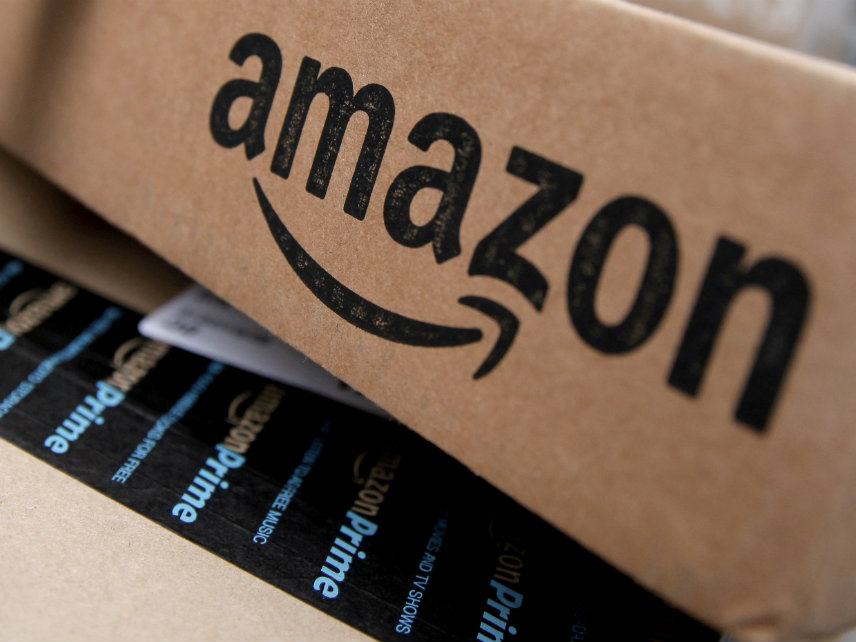Pennsylvania Governor Waited to Release Amazon HQ2 Bid Until After Winners Were Announced
Sure, the public deserves to know what Amazon was getting offered. But it deserved to know all along, too.

On one hand, more states and localities should do what Pennsylvania did yesterday in the hours after Amazon announced that it would not be locating it's second headquarters there.
On the other, it's far from a shining example of transparency.
Gov. Tom Wolf on Tuesday released copies of letters the state sent to Amazon promising $4.5 billion in direct subsidies over 25 years if the online retailing giant had picked a Pennsylvania location (Philadelphia and Pittsburgh both made bids) for its new headquarters. The state also promised more than $100 million in infrastructure improvements around the proposed sites.
The grants would have been provided through a new state economic development grant program, the administration told the Associated Press' Marc Levy, and that program would have been open to other businesses as well—but, c'mon, you don't exactly see states scrambling to create new, multi-billion grant programs to subsidize pizza shops and toymakers.
Pennsylvania officials, like those in many of the other states chasing the Amazon HQ2, had refused to disclose how much of Amazon's tax burden they were willing to shift onto other taxpayers. When faced with public records requests for details of its bid, Pittsburgh claimed the documents were a "trade secret." The state Office of Open Records, which adjudicates disputes over right-to-know requests in Pennsylvania, laughed at that idea and told Pittsburgh to give up the goods, but the city and state successfully dragged the appeal process out until Amazon made a decision.
They weren't alone in trying that ridiculous tactic. In Connecticut, officials also claimed their Amazon HQ2 bid was a "trade secret." More ridiculously, the state's Freedom of Information Commission agreed, and allowed the bid to be kept secret.
Indeed, this sort of secrecy surrounding backroom deals to squander billions of taxpayer dollars is not limited to the Amazon HQ2 project. San Jose, California, for example, is currently fighting a lawsuit seeking the release of details about a proposed land sale to Google. City officials says they signed a nondisclosure agreement about the deal, raising some serious questions about whether they are working for the public or not.
Another common excuse is to claim—as Wolf did on Tuesday in explaining why Pennsylvania kept their bid secret for so long—that releasing information to the public would somehow create a disadvantage in a high-stakes competition. That's nonsense too. To believe it, you'd have to think that Pennsylvania saying it was offering $4.5 billion would somehow trigger other states to offer more. Except, well, other states did offer more. New Jersey plied Amazon with $8.5 billion, and Maryland promised $5 billion. If Amazon was merely going to pick the biggest pile of cash (which is not what it did, anyway), then how does keeping the public in the dark benefit Pennsylvania's bid in that scenario? Amazon is going to know all the bids anyway, regardless of how many others do.
Silly justifications for government secrecy are a dime a dozen, but such opacity surrounding billion-dollar economic development schemes is almost never in the public's best interest. Instead, it's usually about protecting the politicians. It's a way to prevent taxpayers from voicing meaningful opposition to such giveaways until the deal is done.
It also amounts to a tacit acknowledgment that the public will be opposed; if taxpayers would be on board with something like this, the details would never be kept secret. Indeed, they would probably be runing ads touting how much money they were spending on Amazon—or at least they would be posting the equivalent of "your tax dollars at work" signs—rather than constructing flimsy legal arguments and political rationalizations for keeping everything secret.
Wolf deserves a modicum of credit for 'fessing up about Pennsylvania's offer—but it would have meant considerably more to have come clean before the decision was made, and before this year's election. Now that he doesn't have to face the voters again (he's term-limited), this post hoc effort at transparency costs him nothing.
Still, other officials should follow the lead. Put all your cards on the table and let's see what Amazon was getting offered. The public deserves to know—and it deserved to know all along.
If states and cities are going to fritter away billions in grants, subsidies, and tax breaks, that competition should take place out in the open, like this:


Show Comments (10)